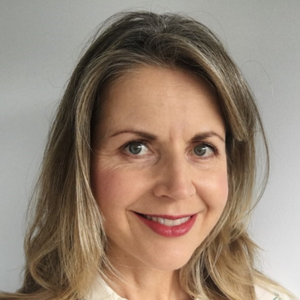Cheers to no beers!
If you’re considering giving up, or at least lessening, your alcohol intake over the summer, get prepared early.
It’s been nearly five years since meditation teacher Claire Robbie last had a drink. She wasn’t an alcoholic, but had what she calls “a dependency” on alcohol.
“I was never able to moderate my drinking - once I’d had two drinks it was game on.”
She’s been alcohol-free since January 1, 2016, after realising that she’d only drunk the night before “because everyone else was drinking”. Since then, she’s become passionate about helping other people re-evaluate their relationships with alcohol, firstly through the No Beers, Who Cares? Movement, and now with a series of personalised Reset programmes.
“I think it’s becoming much more acceptable now. It’s way cooler to be able to remember your good times at a party than to have a patchy memory the next day.”
“The more I have educated myself in this area, and the more I’ve learned about alcohol as a substance, it’s horrifying. One drink is too many, in terms of toxicity.”
Robbie’s 90-day Reset programme, which requires complete sobriety, teaches participants to think differently about alcohol.
“In 90 days there’s an amazing amount of reconditioning that happens. The brain is very plastic - we can be taught to make different choices and those choices become who we are.”
She puts huge emphasis on the importance of self-awareness and recognising the feelings that push you towards drinking.
“It might be a desire for excitement, joy and connection or a desire to escape sadness and boredom, or other things you don’t want to feel. Being self-aware means that every time you feel like this you recognise that you have a conditioned response.”
Robbie says choosing not to drink when these feelings emerge helps to reprogramme neural pathways.
“If you can do that during the silly season, you are very clever. Barbecues, parties, Christmas, even the sun coming out can be a trigger to drink alcohol. Making a different choice can feel so uncomfortable, but every time you do it gets easier.
“With my people, I go through some powerful visualisation techniques - I get them to imagine being at the barbecue and having a few drinks, through to how they feel the next morning. Then we do a visualisation of what it would be like to be at the barbecue and not have a drink - getting through the initial awkwardness, the feeling of being left out, being able to drive home, the pride and joy you feel for not drinking and the great night’s sleep you’ll have, how great you’ll feel getting up early the next morning to go for a hike. It’s all about the power of the mind.”
If you’re considering giving up, or at least lessening, your alcohol intake over the summer, Robbie advises getting prepared early.
“Figure out your alternatives. Get really interested in things like herbal teas, mocktails and kombucha.
“Have some support people so you can process all those feelings. It’s definitely, absolutely not easy. I don’t have any desire to drink but I still feel different sometimes and a bit lonely. When you make any change there’s a grieving process.”
During lockdown, Coromandel couple Courtney and Matthew Linnecar realised they were starting to drink alcohol like it was going out of fashion. As business owners and parents of two small boys, they were alarmed to realise that they were habitually reaching for a drink every day like it was no big deal. Even if they weren’t drinking alcohol, it was difficult to find decent alternatives that weren’t high-sugar, made from concentrates or imported.
In September, the couple launched Drink Happy, a subscription service that curates locally-produced non-alcoholic and ‘functional’ drinks. Matthew Linnecar says their goal is to find new ways for people to treat themselves and stay social while avoiding alcohol.
“We know that changing our drinking behaviours can be hard,” he says. It can feel like a chore and even antisocial at times. That’s why we’ve done the hard yards to help make drinking healthier easier and exciting for people going through new lifestyle changes.”
“Our aim is to have people questioning how they drink, whether that’s alcohol or sugar,” Courtney says.
She believes people are becoming more aware of the health impacts of alcohol, particularly on mental health, and questioning their relationship with drinking.
“I think people are starting to realise that self-medicating with alcohol isn’t a great idea. Partly that’s because they’re more aware of the connection between alcohol and anxiety and depression, but it’s also because there are so many great alternatives.”
Post-lockdown, the Linnecars say their drinking behaviour has permanently changed and that they now call themselves ‘mindful drinkers’ who might have a drink on a special occasion rather than as a daily reward. Neither will be touching alcohol this summer - Courtney is expecting their third child in March and Matthew has decided to avoid drinking it in solidarity with her.
“We went to a party recently and when we both said no to a glass of wine, the person who offered it didn’t bat an eyelid,” Courtney says. “I think it’s becoming much more acceptable now. It’s way cooler to be able to remember your good times at a party than to have a patchy memory the next day.”
About the author

Lucy Corry is a Wellington journalist and recipe writer.